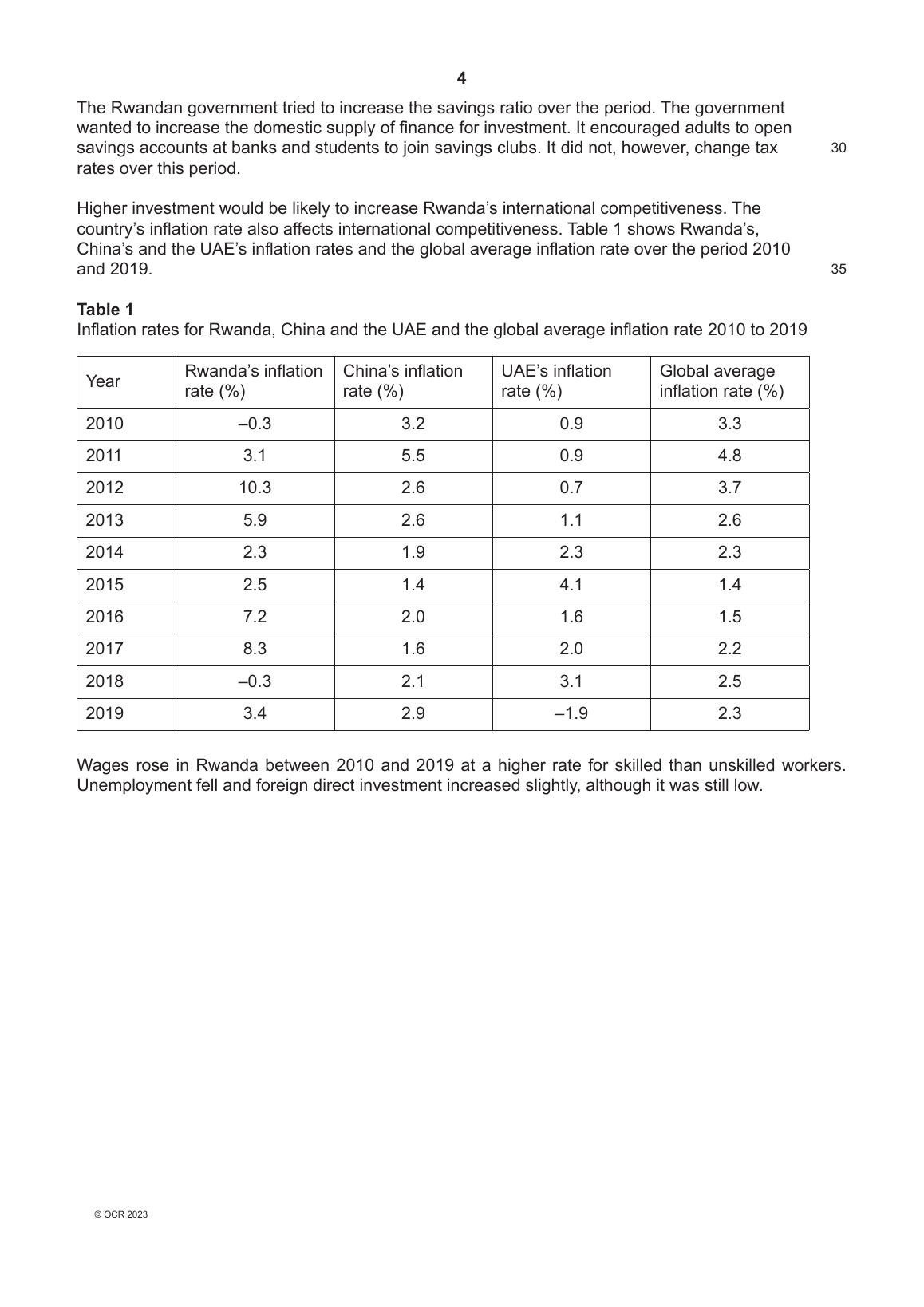 Cookies!
Cookies!
 View example
View example
OCR GCE A LEVEL ECONOMICS PAPER 2 QUESTION PAPER 2023 (H460/02: Macroeconomics). DOWNLOAD OFFICIAL AND VERIFIED OCR A LEVEL ECONOMICS PAPER 2 QUESTION PAPER 2023 ON www.leakedexams.com.
International competitiveness
In 2019, the UK had a trade in goods and services deficit of £30.5bn and a current account deficit
of £95.3bn. A country’s international competitiveness is influenced primarily by the relative price
and quality of its products.
In the 2019 global competitiveness index, published by the World Economic Forum, the UK was
ranked 9th out of 141 countries. This position was down one on 2018. Singapore was placed 1st
in 2019 and 2nd in 2018.
The World Economic Forum considers 12 categories of influences on a country’s international
competitiveness. These include the country’s financial system, the skills of its workers and
its macroeconomic stability. The UK has a strong financial system and was placed 7th in this
category. Its central bank has experience in, for instance, maintaining price stability and engaging
in quantitative easing. The country’s commercial banks provide savings facilities, loans and other
services for their customers.
The UK was placed 11th in the skills category. A more skilled labour force is likely to have higher
productivity. In turn, productivity can also be affected by working hours. Between 2018 and
2019, average working hours fell in Germany, the UK and the USA and labour productivity rose.
In contrast, both average working hours and labour productivity rose in Poland and both fell in
Mexico over this period.
The category in the global competitiveness index which the UK performed best in was
macroeconomic stability. It came 1st achieving a maximum score of 100. Macroeconomic stability
can increase business confidence. This can increase investment, international competitiveness
and GDP per capita. Fig. 1 shows the international competitiveness ranking of eight countries
and their GDP per capita.
| Author | OCR KING |
| Published | 15 Dec 2025 |
| Included files | |












